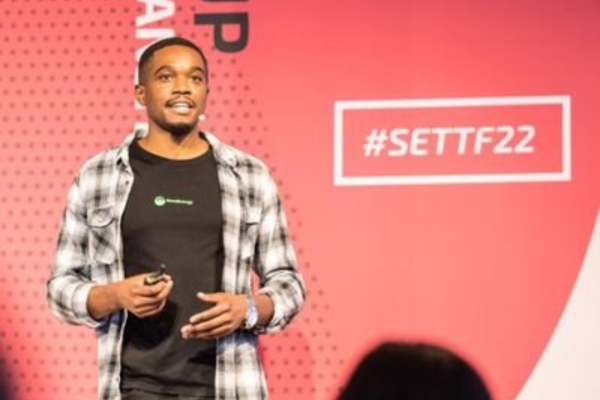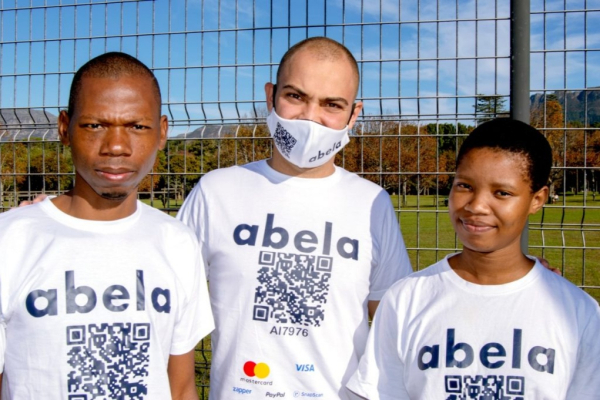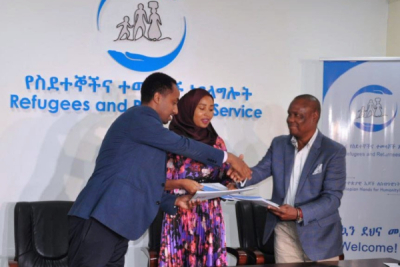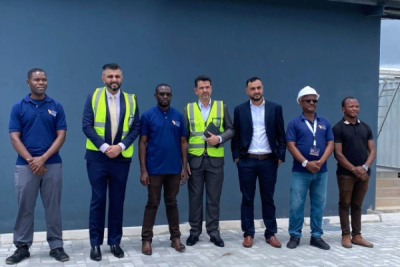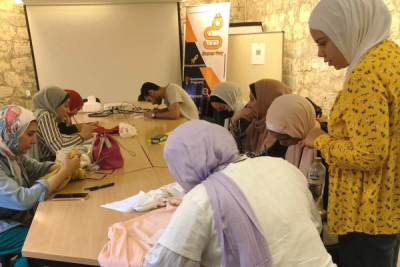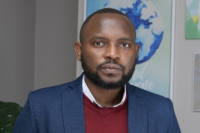He is an entrepreneur in the field of renewable energy. As a team lead at energy startup NeedEnergy, he brings clean energy solutions to the world's most remote regions.
Leroy T. Nyangani (photo) is the team lead and one of the co-founders of NeedEnergy, a Zimbabwean startup that uses artificial intelligence to optimize renewable energy microgrids in sub-Saharan Africa and remote parts of the world.
A chemical engineer by training, he graduated from the Zimbabwe National University of Science and Technology with a Bachelor's degree in 2019. He co-founded NeedEnergy in 2016 with the ambition of deploying renewable and clean energy assets to over 200 million people by 2030.
NeedEnergy provides smart data to renewable energy microgrid operators, by analyzing meteorological data. It aims to extend access to clean energy in sub-Saharan Africa as well as in remote areas of the world.
Via its platform memeza.ai, NeedEnergy collects data from various IoT (Internet of Things) devices such as smart gas meters and home energy monitors to analyze the energy needs of the distribution network. This data is used to form models, helping to identify opportunities for the deployment of renewable energy generation assets. Once deployed, these assets are monitored and managed via the platform to guarantee their power and performance.
On September 21, 2023, the company was selected as part of the inaugural cohort of the Google for Startups Accelerator: Climate Change program for startups in the Middle East and Africa.
Prior to NeedEnergy, Leroy T. Nyangani founded Mornay Foods, which offers an on-demand food ordering service and a restaurant that mainly targets university campuses and office parks. His professional career began in 2015 at Bakers Inn Zimbabwe, a bakery, where he was a production and packaging specialist.
He has been recognized as an innovative entrepreneur committed to the energy transition. He was selected as a Unreasonable Fellow by Unreasonable Group, an organization that supports entrepreneurs who solve the world's greatest challenges. Since March 2023, he is a Techstars Entrepreneur following the selection of NeedEnergy as part of the 2023 Class of the Equinor & Techstars Energy Accelerator.
Melchior Koba
To facilitate financial and commercial transactions for local populations, African tech entrepreneurs are multiplying financial technology solutions, some more interesting than others.
Abela is a mobile application developed by a South African startup and launched in 2020. It enables access to online banking services via its mobile app.
"We live in an economy that is going cashless, and people are losing out because of it. The global pandemic has only accelerated this movement. [...] Today, 10.4 million South Africans have seen their monthly income decrease by up to 75 percent due to this digital transformation. Abela seeks to address this concern and provide customers, especially those who have been underserved within the informal sector and diaspora, with the financial autonomy and security they deserve. Traditional banking solutions have often overlooked this part of the population and we aim to bridge that gap," said Thomas David, founder and CEO of Abela, on the reasons that prompted the creation of the solution.
The mobile application is available for iOS and Android devices. Once downloaded, it allows users to create accounts by inputting their phone numbers, names, and passwords as well as uploading proof of identity. Once they upload their proof of identity, users are required to create a PIN code and take a selfie to validate the account. The tedious process was put in place because the startup wanted to avoid security risks.
Users who pass the validation stage can carry out various transactions like airtime purchases and bill payments. They can also top up their Abela accounts using credit cards, bank transfers, and QR code payments. In addition to these services, the solution also lets them send money outside South Africa in just a few clicks.
Since its launch, the Android version of the mobile application has been downloaded more than 10,000 times. Though only present in South Africa for the time being, the startup wants to expand outside. "In terms of expansion, we see a lot of opportunity for growth across the continent, specifically in Sub-Saharan Africa, in particular, our neighboring countries of Malawi, Botswana, and Namibia," Thomas David said in 2021.
Adoni Conrad Quenum
Tunisia wants to capitalize on accelerating digital transformation to modernize its administration. For that project, the North African country sees Japan as a key partner.
On Tuesday, October 10, Tunisia's Minister of Communication Technologies, Nizar Ben Neji (photo, left), and his Japanese counterpart for Digital Transformation, Taro Kono (photo, right), signed a memorandum of understanding aimed at promoting bilateral cooperation in the field of digital transformation and modern technologies.
The memorandum, signed on the sidelines of Mr. Ben Neji's current visit to Japan, covers e-government, digital transition, experience sharing, data analytics, e-payment, digital identity, cloud, artificial intelligence solutions, and more.
"This memorandum is also a translation of the commitment of both countries to strengthen and open the horizons of cooperation between Tunisia and Japan to benefit from global best practices and opportunities available in the fields of digital transformation and modern technologies to develop government services for citizens and institutions, promote innovation and entrepreneurship, and support sustainable development goals," said the Tunisian Ministry of Communication Technologies in a statement.
The signing of this memorandum of understanding is part of the actions undertaken by the Tunisian government in recent months to promote digital transformation. It comes a few months after the signing of a memorandum of understanding with China to promote collaboration in several areas, including digital infrastructure, research and innovation, skills development, digital technology development, cybersecurity, the digital economy, and the exchange of expertise.
The new protocol will enable Tunisia to take advantage of Japanese expertise and make considerable progress towards achieving the objectives of its digital strategy, which is due to be implemented by 2025. It will also enable Japan to "benefit from Tunisia's experience in several e-government projects, in particular the digital identity project, information exchange, cybersecurity regulation and the encouragement of startups," said Taro Kono.
Samira Njoya
In Ethiopia, the National Identification Program Office, the Refugees and Returnees Service (RRS), and the Office of the United Nations High Commissioner for Refugees (UNHCR) signed a memorandum of understanding last Friday, October 6.
The agreement aims to provide a national digital ID to some 90,000 refugees and returnees in the country over the next three years. The aim is to enable access to government services and benefits for the refugees and returnees.
Liquid Intelligent Technologies, a subsidiary of pan-African technology group Cassava Technologies, announced on Tuesday, October 10 its partnership with wingu.africa, a pioneering provider of carrier-neutral data center services in Tanzania.
The new partnership aims to launch a second Azure Stack in Tanzania, offering local businesses access to cutting-edge cloud solutions and the means to thrive in the digital age.
Distance learning platforms have become choice alternatives to traditional education. In Africa, there is a growing number of such platforms, which offer diversified courses adapted to learners’ needs.
Super Fny is an edtech platform developed by an Egyptian startup. It enables access to professional training videos. Basically, Super Fny aims to improve the technical skills of professionals and students to better prepare them for job market challenges.
Currently, it has no mobile app. So, to access its services, users need to visit its website, register for an account, and browse the training courses offered. Among other things, they can learn leather goods and leather manufacturing techniques, bag, and wallet making, the basics of entrepreneurship, and more. Some courses are available for free and others cost up to 150 Egyptian pounds (around $4.85).
In addition to training, the startup also connects companies with trained technicians. Doing so, it enables its learners to get work related to the courses they take on its platform.
Super Fny has over 35 partners, more than 34,000 trainees, over 200 trainers, and offers some sixty training courses. Present in 17 governorates of Egypt, it aims to expand throughout the Arab world. For that purpose, it completed a funding round in 2022. The amount of the deal was not disclosed but we learn that the proceeds will fund the development of its technology and accelerate the implementation of its growth plan.
Adoni Conrad Quenum
In addition to quality services, companies usually need good customer interaction to acquire new clients and retain existing ones. This realization prompted tech entrepreneur Japheth Dibo to develop customer support solutions for SMEs.
Japheth Dibo (photo), CEO of Dial Afrika, is a Kenyan entrepreneur with a passion for information technology. He founded Dial Afrika, in 2021, with his partner Benard Gavana to provide a unified communications solution that enables African SMEs to stay in touch with clients and get insights into customer behaviors.
Through his company, the Jomo Kenyatta University of Agriculture and Technology (JKUAT) graduate offers SMEs the possibility of receiving and responding to client comments, calls, and opinions right from a single platform that integrates various channels.
"It does not matter which platform a customer gives their feedback or query from. Once the company responds through the software, from the other end, the customer may think they are receiving the feedback from the platform they used to send their queries,” the tech entrepreneur explained in 2022.
Dial Afrika also uses artificial intelligence to collect and analyze data on customers to help companies make more informed decisions.
The company, endorsed by over 150 customers in five countries, aims to help SMEs build customer loyalty, increase sales and optimize customer service. On October 5, 2023, it was selected, along with 10 other start-ups, to participate in the Google for Startups Accelerator Africa: AI First program.
Before embarking on that exciting journey, Japheth Dibo worked for GoldBet, a Kenyan sports betting company between 2016 and 2017. There, he successively held the positions of customer technical support representative and IT team leader. He then joined the property management company Carnation Properties Ltd., where he worked as a system administrator until 2018.
Melchior Koba
The Chinese video-sharing platform TikTok is enjoying great success on the African continent. While some countries have no problem with it, Senegal considers the application to be a threat to national stability.
TikTok will remain suspended until further notice in Senegal, Minister of Communication Moussa Bocar Thiam (photo) said at a press conference last October 5. According to the government official, the government is in talks with the social network’s executives to lift that suspension.
"It's an unfortunate situation because our objective is [to guarantee] the free use of this platform [...] For the moment, the restriction is maintained pending the conclusion of a comprehensive written agreement," he said.
Three conditions were set out for the lifting of the suspension. Firstly, the Minister insisted on the need for TikTok to put in place a mechanism guaranteeing the deletion of fake accounts and accounts with subversive content. He also called for a local representation in Senegal.
Finally, the government called for regulation of the application's algorithm in Senegal, to control content that could run counter to Senegalese values and negatively influence young people. According to the Minister, it's a question of knowing what content is being offered to Senegalese.
The ban on TikTok was imposed in August following the arrest of opposition leader Ousmane Sonko. At the time, Senegalese authorities said it was "the preferred network used by malicious individuals to spread hateful and subversive messages threatening the country's stability."
Despite being banned in the country, it is still widely used by the Senegalese youths who use means like VPNs to bypass censorship.
Samira Njoya
Over the past decade, the Kenyan government has invested heavily to make the country a technological hub in East Africa. It wants to reach even greater heights with the support of various partners.
On Thursday, October 5 in Nairobi, the European Union (EU) Commission launched a €430 million digital package aimed at extending connectivity in Kenyan schools, creating a green digital innovation center, and supporting the government in its digital transition.
The package, unveiled during the official visit of the European Union's Commissioner for International Partnerships, Jutta Urpilainen, underlines the EU's commitment to Kenya's technological transformation.
"Expanding digital connectivity, upskilling jobs, and driving digital governance and services is at the heart of what our investment strategy is about: Creating sustainable connections and local added value while cutting unsustainable dependencies," said Jutta Urpilainen.
The launch of this digital package in Kenya is part of Europe's Global Gateway strategy, an initiative of the European Commission to advance the dual digital and green transition and provide reliable, sustainable connections to partner countries.
In Kenya, the initiative will reduce the digital divide by providing Internet access to around 1,300 schools in remote areas. A grant of 9.8 million euros will fund the development of infrastructure and digital educational skills and services in schools in 47 counties. These will benefit over 219,000 children as part of the GIGA program, a global initiative set up by the United Nations Children's Fund (UNICEF) and the International Telecommunication Union (ITU).
The package will also enable the creation of a green digital innovation cluster supported by the EU and Germany, as well as e-government initiatives in partnership with Estonia and Germany, and participation in Govstack, an innovative community project formed as part of a multilateral partnership between Germany, Estonia, ITU, and Digital Impact Alliance.
According to William Ruto, President of the Republic of Kenya, the aim of the partnership with the European Union is to create a link that will contribute to sustainable development, the empowerment of the most disadvantaged, and the promotion of good governance and the rule of law in the country.
Samira Njoya
Africa has historically been the continent with one of the lowest banking penetration rates. Those rates have been growing over the past few years but, with the introduction of digital alternatives, the rise is poised to be faster.
PiggyVest is a fintech solution developed by a Lagos-based startup founded in 2016. It enables individuals and businesses to save towards goals like launching a business, buying a car, or furthering education. It was founded by five passionate entrepreneurs, who succeeded in raising around $1.2 million in funding to accelerate its growth.
"When we started, there were 22 banks in Nigeria. So there was quite a lot of option and yet, young people were storing their savings in wooden boxes under their beds. This showed us that people might have access to financial services but they weren’t developed to serve their needs," explained Odunayo Eweniyi, co-founder and chief operations officer of PiggyVest
To access the various services offered by the solution, users need to download its mobile app –Android or iOS version– and register for an account. Among other things, PiggyVest offers several ways to save, such as goal-oriented savings, savings in foreign currencies such as the dollar (flex dollar), or fixed savings, which involves blocking funds for a set period without having access to them until maturity. Its savings plans remunerate users with 5 to 15% interest.
"With PiggyVest, users can save as much as they want as frequently or infrequently as they want, be it every day, every week, or every month. [...] We offer quarterly free withdrawal days when users can take money out if they need to without any cost. Should a user want to withdraw their money early or outside of these days, they will be charged a fee to discourage them from doing so," indicated Odunayo Eweniyi. PiggyVest claims over 4 million users. In 2021, its users saved over $480 million.
Adoni Conrad Quenum
More...
He automates SMBs’ customer interactions using AI-enabled chatbots. His innovations in science and technology have earned him several awards.
Ghanaian Ronald Tagoe is the founder and CEO of Chatbots Africa, a Kenya-based startup that helps small and medium-sized enterprises (SMEs) automate customer interactions and sales channels using social chatbots.
His remarkable academic career started at the Kwame Nkrumah University of Science and Technology (KNUST) where he graduated, in 2013, with a Bachelor’s in computer science. In 2021, he obtained a Master's in Management Information Systems from the University of Leicester.
Barely a year before that Master’s he had already founded Chatbots Africa to enable African SMEs to boost their revenues and improve customer engagements using artificial intelligence and chatbots. Through that company, he provides SMEs with AI-enabled conversational bots, which interact with clients on WhatsApp, Instagram, and Facebook.
"Our solution enables clients to hold real-time conversations with customers, build brand credibility, and boost engagement in a way that drives sales and enhances business efficiency," Ronald Tagoe told news outlet TechCabal in 2021.
Nowadays, Chatbots Africa’s products are used in more than five countries with over one million active users monthly. On October 5, 2023, it was selected as one of 11 African startups to join the Google for Startups Accelerator: AI First program.
Before launching Chatbots Africa, Ronald had co-founded (in 2012) mNotify, a telecom company that offers voice and SMS services to organizations. Between 2013 and 2014, he worked, as hub manager, for technology innovation center Tech Hub. He also served as GTBank's Head of Enterprise Solutions between 2014 and 2017.
Ronald Tagoe has been recognized for his dedication and commitment to science and technology. Notably, he won the Transformed Africa Youth Innovation Award in 2014. He was an Afric'Up 2019 finalist, won the Tech Cabal Future of Commerce Partnership Pitch in 2021, and was named Technology Entrepreneur of the Year 2021 by the Ghana Startup Network. He was named the best science and technology personality of the year at the inaugural Forty Under 40 Africa Awards in 2022.
Melchior Koba
The center offers cutting-edge entrepreneurship and digital skills training programs to develop a talent pool capable of taking advantage of the global digital economy.
Adei Technology Hub is a development and innovation center located in Abidjan, Côte d'Ivoire. It was founded in 2017 by Odomitchi Anikpo, its executive director and a former Google and Salesforce employee.
The innovation center offers technical and entrepreneurial training, as well as startup coaching programs. It has a coworking space, an events room, and private offices with access to international expertise and cutting-edge technologies.
Its stated mission is to train, support, and connect key players in the regional and international tech ecosystem, therefore promoting innovation and entrepreneurship in Africa and showcasing local talent, ideas, and solutions.
To entrepreneurs, Adei Technology Hub offers Adei Elevate - Launch Boost Grow, a program that reinforces the fundamentals of entrepreneurship through e-learning, peer-to-peer interaction, and mentoring. Supported by FINCA Ventures, Creative Valley, Seedstars, and Impact Hub, the program offers a series of workshops tailored to each entrepreneur’s stage of development.
The hub also has the Adei Elevate & Fellowship program to support revenue-generating startups aiming for investment within two years. To professionals, Adei Technology Hub offers the Tech Talent Accelerator Program, a six-month theoretical and practical training program that equips them with the skills they need to excel in the technology sector.
Adei Technology Hub also organizes events such as Meet & Greet, which brings together students from its programs, members of the Adei Fondation Côte d'Ivoire, and other guests. All these offers contribute to the development of the technology sector in Africa.
Melchior Koba
In recent years, on-demand transport applications have become genuine competitors to traditional cabs. In response, some cab associations have decided to enter this segment too.
Yo!Taxi is a mobile application developed by a South African startup launched by twelve meter cab associations to compete against giants like Uber and Bolt. It enables users to order cabs for their various journeys around town.
Through its Android and iOS apps, users can register for accounts, using their phone numbers and email addresses. To order a cab, they need to enter their destination and press the "Get my Yo!Taxi" button to send the request to drivers in the area. After this step, they have to click on "Pick me up from here" to choose a driver if several are proposed, then confirm the fare based on the app's estimate.
The driver's details can be accessed by clicking on his or her profile. It is worth noting that the startup collects and verifies the information of each of its drivers before their maiden trips. It also has security mechanisms like cameras, an emergency button, and a vehicle tracker to ensure the safety of cab occupants.
In addition to on-demand transportation, the South African company also offers delivery services. Whether it's food from a local restaurant or a parcel, drivers are available to carry out the errands. Since its launch, the Android version of the application has been downloaded more than 10,000 times.
Adoni Conrad Quenum
He combines creativity and technology to improve the quality of life of amputees. Thanks to his prostheses, he has been quoted by magazines on numerous occasions and has received awards from international institutions.
Tunisian engineer Mohamed Dhaouafi (photo) is the CEO of Cure Bionics, a company developing affordable bionic prostheses. He earned a bachelor's degree in electronic and electrical engineering from the national engineering school in Sousse in 2017. In 2020, he got a master’s in non-profit management from the Tunis Business School.
While studying engineering, he discovered that one of his teammates had a cousin with no upper limbs and couldn't afford a prosthesis. This inspired him to create Cure Bionics in 2018. Designed with biodegradable materials, Cure Bionics' 3D-printed bionic arms are adjustable and feature a solar-powered battery.
A member of Tunisian Talents United, a group committed to transforming bright young Tunisians into great leaders, since July 2022 he has also been CEO of Ecobees, an agritech startup developing IoT (Internet of Things) solutions with a beehive laboratory in Tunisia.
He is also the co-founder of Agaruw, an eco-friendly fashion brand, as well as an online marketplace for ecological and sustainable fashion alternatives. In 2017, he also co-founded the incubator Zeta Hub, of which he was co-director until 2018.
Mohamed Dhaouafi has received several awards for his innovative work. He was part of the Obama Foundation's Africa Leader 2019 program. He was also named one of the top young innovators under 35 by the Massachusetts Institute of Technology's prestigious Technology Review. He is also one of Forbes' Middle East 30 Under 30 winners for 2020 and Time magazine's Next Generation Leaders.
Melchior Koba


